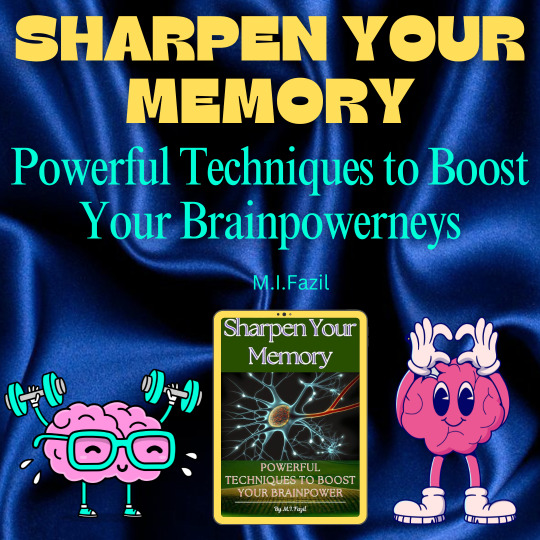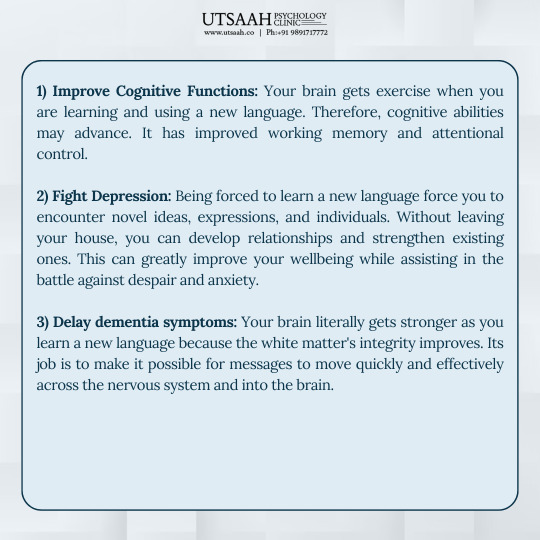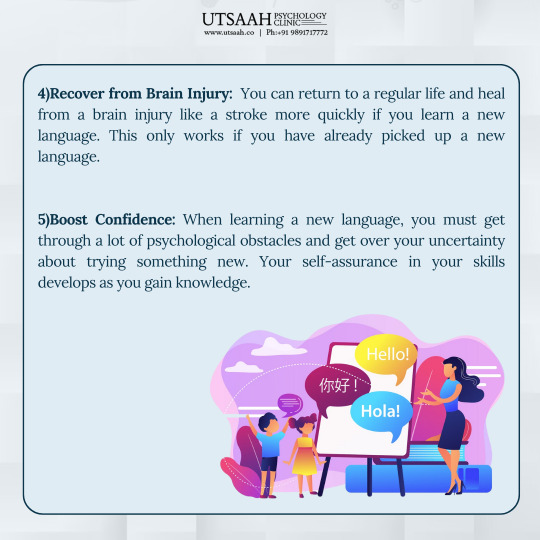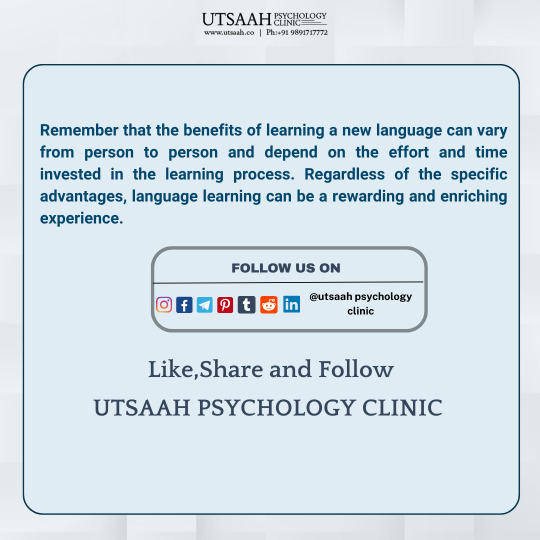#improve cognitive abilities
Explore tagged Tumblr posts
Text
By the way, you can improve your executive function. You can literally build it like a muscle.
Yes, even if you're neurodivergent. I don't have ADHD, but it is allegedly a thing with ADHD as well. And I am autistic, and after a bunch of nerve damage (severe enough that I was basically housebound for 6 months), I had to completely rebuild my ability to get my brain to Do Things from what felt like nearly scratch.
This is specifically from ADDitude magazine, so written specifically for ADHD (and while focused in large part on kids, also definitely includes adults and adult activities):
Here's a link on this for autism (though as an editor wow did that title need an editor lol):
Resources on this aren't great because they're mainly aimed at neurotypical therapists or parents of neurdivergent children. There's worksheets you can do that help a lot too or thought work you can do to sort of build the neuro-infrastructure for tasks.
But a lot of the stuff is just like. fun. Pulling from both the first article and my own experience:
Play games or video games where you have to make a lot of decisions. Literally go make a ton of picrews or do online dress-up dolls if you like. It helped me.
Art, especially forms of art that require patience, planning ahead, or in contrast improvisation
Listening to longform storytelling without visuals, e.g. just listening regularly to audiobooks or narrative podcasts, etc.
Meditation
Martial arts
Sports in general
Board games like chess or Catan (I actually found a big list of what board games are good for building what executive functioning skills here)
Woodworking
Cooking
If you're bad at time management play games or video games with a bunch of timers
Things can be easier. You might always have a disability around this (I certainly always will), but it can be easier. You do not have to be this stuck forever.
#actually autistic#executive dysfunction#neurodivergent#adhd#not news#hope#at least it's been very hopeful for me
62K notes
·
View notes
Text
The data does not support the assumption that all burned out people can “recover.” And when we fully appreciate what burnout signals in the body, and where it comes from on a social, economic, and psychological level, it should become clear to us that there’s nothing beneficial in returning to an unsustainable status quo.
The term “burned out” is sometimes used to simply mean “stressed” or “tired,” and many organizations benefit from framing the condition in such light terms. Short-term, casual burnout (like you might get after one particularly stressful work deadline, or following final exams) has a positive prognosis: within three months of enjoying a reduced workload and increased time for rest and leisure, 80% of mildly burned-out workers are able to make a full return to their jobs.
But there’s a lot of unanswered questions lurking behind this happy statistic. For instance, how many workers in this economy actually have the ability to take three months off work to focus on burnout recovery? What happens if a mildly burnt-out person does not get that rest, and has to keep toiling away as more deadlines pile up? And what is the point of returning to work if the job is going to remain as grueling and uncontrollable as it was when it first burned the worker out?
Burnout that is not treated swiftly can become far more severe. Clinical psychologist and burnout expert Arno van Dam writes that when left unattended (or forcibly pushed through), mild burnout can metastasize into clinical burnout, which the International Classification of Diseases defines as feelings of energy depletion, increased mental distance, and a reduced sense of personal agency. Clinically burned-out people are not only tired, they also feel detached from other people and no longer in control of their lives, in other words.
Unfortunately, clinical burnout has quite a dismal trajectory. Multiple studies by van Dam and others have found that clinical burnout sufferers may require a year or more of rest following treatment before they can feel better, and that some of burnout’s lingering effects don’t go away easily, if at all.
In one study conducted by Anita Eskildsen, for example, burnout sufferers continued to show memory and processing speed declines one year after burnout. Their cognitive processing skills improved slightly since seeking treatment, but the experience of having been burnt out had still left them operating significantly below their non-burned-out peers or their prior self, with no signs of bouncing back.
It took two years for subjects in one of van Dam’s studies to return to “normal” levels of involvement and competence at work. following an incident of clinical burnout. However, even after a multi-year recovery period they still performed worse than the non-burned-out control group on a cognitive task designed to test their planning and preparation abilities. Though they no longer qualified as clinically burned out, former burnout sufferers still reported greater exhaustion, fatigue, depression, and distress than controls.
In his review of the scientific literature, van Dam reports that anywhere from 25% to 50% of clinical burnout sufferers do not make a full recovery even four years after their illness. Studies generally find that burnout sufferers make most of their mental and physical health gains in the first year after treatment, but continue to underperform on neuropsychological tests for many years afterward, compared to control subjects who were never burned out.
People who have experienced burnout report worse memories, slower reaction times, less attentiveness, lower motivation, greater exhaustion, reduced work capability, and more negative health symptoms, long after their period of overwork has stopped. It’s as if burnout sufferers have fallen off their previous life trajectory, and cannot ever climb fully back up.
And that’s just among the people who receive some kind of treatment for their burnout and have the opportunity to rest. I found one study that followed burned-out teachers for seven years and reported over 14% of them remained highly burnt-out the entire time. These teachers continued feeling depersonalized, emotionally drained, ineffective, dizzy, sick to their stomachs, and desperate to leave their jobs for the better part of a decade. But they kept working in spite of it (or more likely, from a lack of other options), lowering their odds of ever healing all the while.
Van Dam observes that clinical burnout patients tend to suffer from an excess of perseverance, rather than the opposite: “Patients with clinical burnout…report that they ignored stress symptoms for several years,” he writes. “Living a stressful life was a normal condition for them. Some were not even aware of the stressfulness of their lives, until they collapsed.”
Instead of seeking help for workplace problems or reducing their workload, as most people do, clinical burnout sufferers typically push themselves through unpleasant circumstances and avoid asking for help. They’re also less likely to give up when placed under frustrating circumstances, instead throttling the gas in hopes that their problems can be fixed with extra effort. They become hyperactive, unable to rest or enjoy holidays, their bodies wired to treat work as the solution to every problem. It is only after living at this unrelenting pace for years that they tumble into severe burnout.
Among both masked Autistics and overworked employees, the people most likely to reach catastrophic, body-breaking levels of burnout are the people most primed to ignore their own physical boundaries for as long as possible. Clinical burnout sufferers work far past the point that virtually anyone else would ask for help, take a break, or stop caring about their work.
And when viewed from this perspective, we can see burnout as the saving grace of the compulsive workaholic — and the path to liberation for the masked disabled person who has nearly killed themselves trying to pass as a diligent worker bee.
I wrote about the latest data on burnout "recovery," and the similarities and differences between Autistic burnout and conventional clinical burnout. The full piece is free to read or have narrated to you in the Substack app at drdevonprice.substack.com
20K notes
·
View notes
Text
“Therapy went well today. I was able to unload about everything going on in my life and now I feel more ready to take on the next challenges ahead.”
“I have to sit down and work on some homework soon, but I think I’ll treat myself to a snack beforehand to sharpen my cognitive abilities.”
#simon seville#alvin and the chipmunks#alvinnn and the chipmunks#aatc#therapy#session#homework#snack#snacking is GOOD#brain refresh#cognitive abilities#improvement#stay nourished#emotions are under control
1 note
·
View note
Text
Brain Recharge: 3 Essential Rests You Need for Peak Cognitive Performance
I explain "Why Sleep, Mental Breaks, and Downtime Are the Secret Weapons Your Brain Needs to Thrive and Slow Aging"
Why Sleep, Mental Breaks, and Downtime Are the Secret Weapons Your Brain Needs to Thrive and Slow Aging Last year, I wrote an essay that truly opened some eyes — and I wasn’t surprised. Why? Because I’ve been there myself. When I was younger, I used to think that sleep and rest were luxuries, something I could sacrifice for the sake of productivity. I pushed myself hard, ignoring the signs…
#2 Vital Role of Ketogenesis in the Brain for Dementia Prevention / Treatment#a shrinking brain is a harbinger of cognitive decline#“aha” moments#BDNF (Brain-Derived Neurotrophic Factor)#biological imperative for the brain function#boost your cognitive abilities and protect your emotional well-being.#Brain Default Network#brain growth via balanced rest and stimulation#Brain Health and Cognitive Function#Brain health tips#Brain need 3 types of rest#Brain needs 4 types of workouts#Brain needs to be in grwoth mode to prevent dementia#Brain power and rest#Brain rest for creativity#Burnout recovery tips#clinical trials for intermittent fasting#Cognitive decline and impairment#Cognitive fatigue solutions#cognitive performance#cognitive performance via healthy lifestyle choices#Cognitive Science#Cognitive science research#Cortisol and stress#Downtime isn’t just “doing nothing.”#Emotional well-being tips#Health and Wellness newsletter by Dr Mehmet Yildiz#Healthy brain habits#Healthy lifestyle choices for dementia prevention#How to improve brain function
0 notes
Text
Mental exercise
To get your thoughts to do the heavy lifting, take a pen or pencil, a sheet of paper, write down what you would type, each time you're compelled to post, transfer it to a page, see what happens with your brain
In each instance you do it, time stamp it, and make note of the influence
Begin to categorize the influences by jotting down the hashtag to see what you subconsciously searched out for to express a thing
Over time you'll see your patterns and what leaves an impression and how those things make you feel
Write what you think and the emotions that may follow
Transferring over your power to pad is a way to reclaim your energy and convert it to a way of assessing with a firmer hand, as a discipline, it is yoga, to yolk and unify the spaces between where the unconscious mind and conscious mind may have a gap in perception due to how digital real estate entrains the brain
In this process you reverse engineer and rewire your brain and strengthen neural connections to now recognize what is doing what and why
It will empower you to decrease what depletes and increase what repeats favorability to your mental faculties, it also develops memory and sharpens focus, gives clarity and improves concentration
$afromagnetic § if you benefit from this and it enhances your mental health consider contributing to this movement or donating to this cause of reaching more people who this could assist
#cognitive abilities#cognitive science#social experiment#conducting a study#improving the quality of life#adding value#mental exercises#pineal body
1 note
·
View note
Text
Sharpen Your Memory: Powerful Techniques to Boost Your Brainpower
Unlock the full potential of your mind with "Sharpen Your Memory: Powerful Techniques to Boost Your Brainpower." This comprehensive guide delves into scientifically-backed strategies and practical tips designed to enhance your memory and cognitive function. Whether you're a student looking to ace exams, a professional aiming to stay sharp, or anyone interested in improving mental agility, this book offers valuable insights into memory optimization.

Through a well-structured approach, you'll explore the impact of pushing your limits, learning new skills, and prioritizing sleep on your memory. Discover how nutrition, hydration, and regular exercise contribute to a sharper mind, and learn about the power of mnemonics, chunking, and spaced repetition in reinforcing your recall abilities. With advice on stress management, social engagement, and even the surprising role of humor in memory enhancement, this book provides a holistic view of brain health.
Packed with practical advice, including the best foods and herbs for cognitive support, as well as the latest online tools and apps to keep your mind sharp, "Sharpen Your Memory" is your go-to resource for boosting brainpower and enhancing memory in every aspect of life.
#books#science#nature#Memory improvement techniques#Boost brainpower#Enhance memory skills#Cognitive enhancement strategies#Brain health tips#Memory boosting tips#How to sharpen memory#Effective memory exercises#Memory optimization#Brain training methods#Improve recall ability#Memory enhancement book#Mnemonic techniques#Cognitive function boost#Memory strengthening tips
0 notes
Text
Cortexi Revolutionizing Hearing and Brain Health
#Cortexi Hearing Health#Neuroplasticity and Hearing#Auditory System Enhancements#Cortexi Brain Function Research#Hearing Loss Prevention#Neural Connections and Hearing#Brain-Boosting Technologies#Innovations in Hearing Care#Enhancing Cognitive Functions#Auditory Health Breakthroughs#Cortexi Brainwave Modulation#Improving Auditory Perception#Advancements in Audiology#Neurotechnology for Hearing#Cortexi Cognitive Health#Restoring Hearing Ability#Ear and Brain Connectivity#Neural Regeneration in Hearing#Boosting Mental Acuity#Sound Processing Technologies
1 note
·
View note
Text
I learned something new today about Search Enging Optomisation (SEO)
Today someone introduced me to the ultra-long-tail keyword and I could not understand or picture what it was about. It shows that verbal communication and teaching is accepted, whereas it is quite a struggle to convey that these types of phrases don’t compute for someone who processes visually. No amount of explanation will beat either giving me an example to recognise or an infographic. A long…

View On WordPress
#Accessible SEO approaches for neurodivergent users#Accessibly tailored SEO strategies for diverse cognitive preferences#Certainly#Cognitive accessibility in keyword selection and optimization#Cognitive diversity-aware keyword research and implementation#Cognitive diversity-friendly SEO tactics#conveying ideas visually#defining ultra long tail keywords as a phrase#Detailed description and infographic on keywords#Doing better SEO#here are the ultra long-tail keywords without quotes and separated by commas: Inclusive keyword optimization for neurodiverse audiences#improving search engine optomization#Inclusive keyword practices for diverse cognitive styles#Inclusive keyword strategies for varied cognitive processing#Inclusive keyword targeting for diverse cognitive abilities#Inclusivity in keyword selection and search optimization#Keyword optimization for inclusive online experiences#Keyword research with cognitive diversity in mind#Keyword targeting for diverse cognitive profiles#Keywords tailored for cognitive diversity and inclusivity#Optimizing keywords for cognitive inclusivity and accessibility#Optimizing keywords for inclusive content consumption#providing clear descriptions#providing context and definition#SEO practices promoting cognitive accessibility and diversity#SEO strategies for accommodating diverse cognitive needs#SEO tactics supporting cognitive diversity in search#SEO techniques fostering cognitive diversity in online content#understanding my message#Using Answer the Public to provide keywords
0 notes
Text




Learning a new language offers a wide range of benefits that extend beyond the ability to communicate with speakers of that language.
Check out the post to learn more...
#learning#new#language#offers#wide#range#benefits#that#exted#beyond#ability#communicate#experience#speakers#improve#cognitive#functions#fight#depression#delay#dementia#symptoms#recover#brain#injury#boost#confidence#mentalhealthawareness#newlearningskills
0 notes
Text
Oh to not be trapped in a corporeal form…
#having a physical body is sooooo draining and annoying#I just want the OPTION to not exist on the physical plane#eating and sleeping is so annoying and my life would improve tenfold if they were not necessary#I just think it was very rude of the universe to give people cognition and sentience and not give us the ability to detach from our bodies#thoughts
0 notes
Text
The Transformative Power of Meditation: Cultivating Inner Harmony in a Chaotic World
In our modern, fast-paced lives, finding moments of tranquility and peace can feel like an elusive dream. However, amidst the chaos, one practice has stood the test of time—meditation. This ancient technique offers a profound path to cultivating inner harmony and well-being. In this blog post, we will explore the importance of meditation, and its numerous benefits, and provide practical tips for…

View On WordPress
#anxiety reduction#beginner&039;s guide to meditation#benefits of meditation#coaching#cognitive abilities#compassion and empathy#connection with higher consciousness#consistency in meditation#cortisol regulation#creating a peaceful space#cultivating well-being#daily meditation practice#depression relief#emotional well-being#enhanced immune system#harmony#importance of meditation#improved sleep patterns#inner harmony#meditation#meditation techniques#mental well-being#nutrition#self-awareness#spiritual growth#stress reduction#transformative power of meditation
0 notes
Text
#home & lifestyle#NuviaLab Relax#NuviaLab Relax Stress#NuviaLab Relax is a food supplement#supports the maintenance of a good mood and emotional balance#NuviaLab Relax induce a feeling of calmness#support cognitive abilities#contribute to improving the quality of sleep#10 natural ingredients with a synergistic effect#best combination of ingredients to bring relaxation#good mood and restorative sleep#Stress Relief#Anxiety Reduction#Mental Wellness#F#fashion#health & fitness#business#beauty#funny
1 note
·
View note
Link
In today's fast-paced world, it's more important than ever to maintain a sharp mind and quick thinking abilities. The good news is that there are many ways to naturally boost your brainpower and enhance your cognitive function. This article will provide you with the ultimate guide to improving your intelligence and enhancing your overall brain health.
#sharp mind#quick thinking abilities#good news#naturally boost your brainpower#enhance your cognitive function#ultimate guide#improving your intelligence#enhancing your overall brain health#health#brain#memory and brain#health and wellness
0 notes
Text
We have three brains: The head brain, the gut and the heart.
🧠 Head (Brain): This is where our logic, intellect, and conscious thought processes are centered. Despite its importance, 90% of our behavior is influenced by our unconscious mind.
How to take care:
🧠 Do activities that stimulate your brain, such as puzzles, reading, learning new skills, or practicing mindfulness meditation. These activities can help improve cognitive function and maintain brain health.
🧠 Healthy nutrition, regular exercise, adequate sleep, and managing stress are crucial for brain health. Physical health directly impacts your cognitive abilities and mental clarity.
🧠 Keep your brain active by learning new things regularly. This could involve hobbies, courses, or activities that challenge and stimulate your intellect.
🍽️ Gut: Often referred to as our "second brain," the gut produces a significant amount of serotonin, which plays a crucial role in mood regulation and overall emotional management.
How to take care:
🍽️ Eat a diet rich in fiber, fruits, vegetables, and probiotics (like yogurt or kefir) to promote a healthy gut microbiome. Avoid excessive sugar and processed foods.
🍽️ Drink plenty of water throughout the day to support digestion and overall gut function.
🍽️ Stress can negatively impact your gut health. Practice stress reduction techniques like deep breathing, yoga, or meditation to maintain a healthy gut-brain axis.
❤️ Heart: The heart has neural pathways that communicate with the brain, suggesting a bidirectional flow of information. This connection emphasizes the role of emotions, intuition, and feelings in our decision making and overall cognitive processes.
How to take care:
❤️ Maintain positive relationships, express your emotions constructively, and engage in activities that bring you happiness and fulfillment.
❤️ Regular exercise not only benefits the heart but also helps manage your emotions by releasing endorphins and reducing stress.
❤️ Take time for your self care activities that nurture your emotional and psychological health.
#healthy living#health and wellness#health#mental health#gut health#healthylifestyle#health & fitness#nutrition#wellness tips#wellness#beauty and wellness#mental wellness#wellnessjourney#wellness girl#healthy lifestyle#healthy life hacks#healthy life tips#healthy relationships#healthyliving
884 notes
·
View notes
Text
healthy habits for straight a's
healthy habits play a crucial role in academic success. here’s a detailed explanation of how they can help you get straight a’s, along with some examples:
1. balanced diet
a nutritious diet fuels your brain and body, improving cognitive functions like memory, concentration, and problem-solving skills. for example, eating a breakfast rich in whole grains, fruits, and proteins can enhance your focus and energy levels throughout the day.
2. regular exercise
physical activity increases blood flow to the brain, which can boost your mood and cognitive abilities. exercise also helps reduce stress and anxiety, which can negatively impact your academic performance. for instance, a daily 30-minute walk or a quick workout session can make a significant difference.
3. adequate sleep
sleep is essential for memory consolidation and overall brain function. lack of sleep can lead to poor concentration, reduced problem-solving skills, and lower academic performance. aim for 7-9 hours of sleep each night to ensure your brain is well-rested and ready to learn.
4. hydration
staying hydrated is vital for maintaining cognitive functions. dehydration can lead to fatigue, headaches, and difficulty concentrating. make sure to drink plenty of water throughout the day to keep your brain functioning optimally.
5. stress management
chronic stress can impair your ability to learn and remember information. practicing stress management techniques like mindfulness, meditation, or deep breathing exercises can help you stay calm and focused. for example, taking a few minutes each day to meditate can reduce stress and improve your overall well-being.
6. healthy social interactions
positive social interactions can boost your mood and provide emotional support, which is important for academic success. engaging in group study sessions or discussing topics with friends can enhance your understanding and retention of the material.
examples of healthy habits:
meal planning: prepare balanced meals and snacks ahead of time to ensure you’re eating nutritious foods throughout the week.
exercise routine: incorporate physical activities you enjoy, like dancing, swimming, or playing a sport, into your daily routine.
sleep schedule: establish a consistent bedtime routine to improve your sleep quality.
hydration reminders: set reminders on your phone to drink water regularly.
stress relief activities: find activities that help you relax, such as reading, listening to music, or spending time in nature.
by integrating these healthy habits into your daily life, you’ll create a strong foundation for academic success and overall well-being.
#nenelonomh#it girl#it girl aesthetic#it girl energy#it girl mentality#becoming that girl#becoming her#that girl#student#productivity#study blog#quote#vanilla girl#pinterest girl#from pinterest#pinterest aesthetic#wonyoung#wonyoungism#self care#self improvement#self love#self healing#studying#chaotic academia#wellness#beauty and wellness
389 notes
·
View notes
